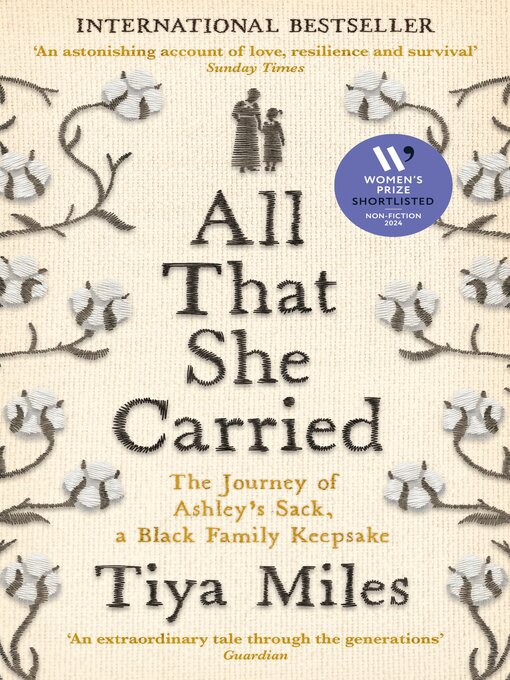SHORTLISTED FOR THE WOMEN'S PRIZE FOR NON-FICTION
LONGLISTED FOR THE BAILLIE GIFFORD PRIZE FOR NON-FICTION
NATIONAL BOOK AWARD WINNER
NEW YORK TIMES BESTSELLER
WINNER OF THE CUNDILL HISTORY PRIZE
'An astonishing account of love, resilience and survival' Sunday Times
'A remarkable book' New York Times
'An extraordinary tale through the generations' Guardian
In 1850s South Carolina, Rose, an enslaved woman, faced a crisis: the imminent sale of her daughter Ashley. Thinking quickly, she packed a cotton bag with a few items. Soon after, the nine-year-old girl was separated from her mother and sold. Decades later, Ashley's granddaughter Ruth embroidered this family history on the sack in spare, haunting language.
That, in itself, is a story. But it's not the whole story. How does one uncover the lives of people who, in their day, were considered property? Harvard historian Tiya Miles carefully traces these women's faint presence in archival records, and, where archives fall short, she turns to objects, art, and the environment to write a singular history of the experience of slavery, and the uncertain freedom afterward. All That She Carried gives us history as it was lived, a poignant story of resilience and love passed down against steep odds.
- eBooks for Adults
- eBooks for Young Adults
- eBooks for Children
- Picture books
- Mystery
- Romance
- Travel
- Newly Added eBooks
- Most Popular eBooks
- See all ebooks collections
- Audiobooks for Adults
- Audiobooks for Young Adults
- Audiobooks for Children
- Newly Added Audiobooks
- Most Popular Audiobooks
- Try Something Different
- See all audiobooks collections
- Newly Added Magazines
- Popular Australian Magazines
- Business & Finance
- Car & Motorcycle
- Crafts
- Entertainment
- Fashion
- Food & Wine
- Home & Garden
- Men's Lifestyle
- Women's Lifestyle
- Technology & Gaming
- All Magazines
- See all magazines collections

